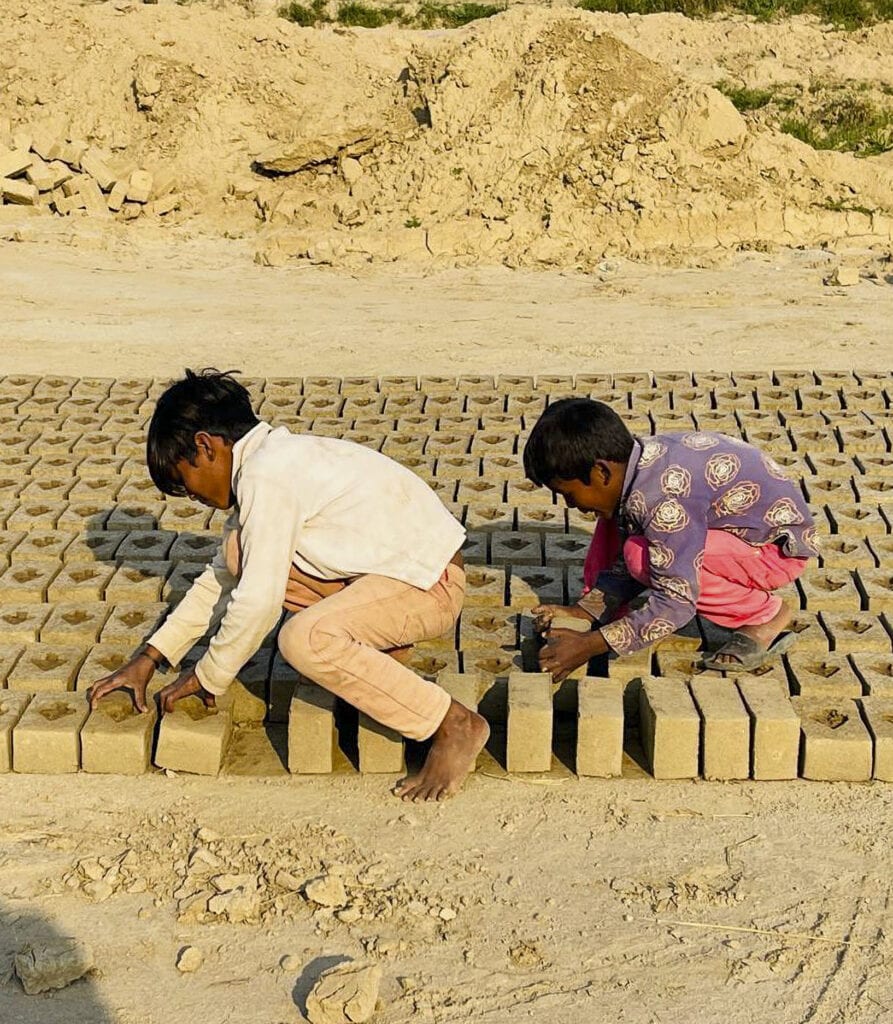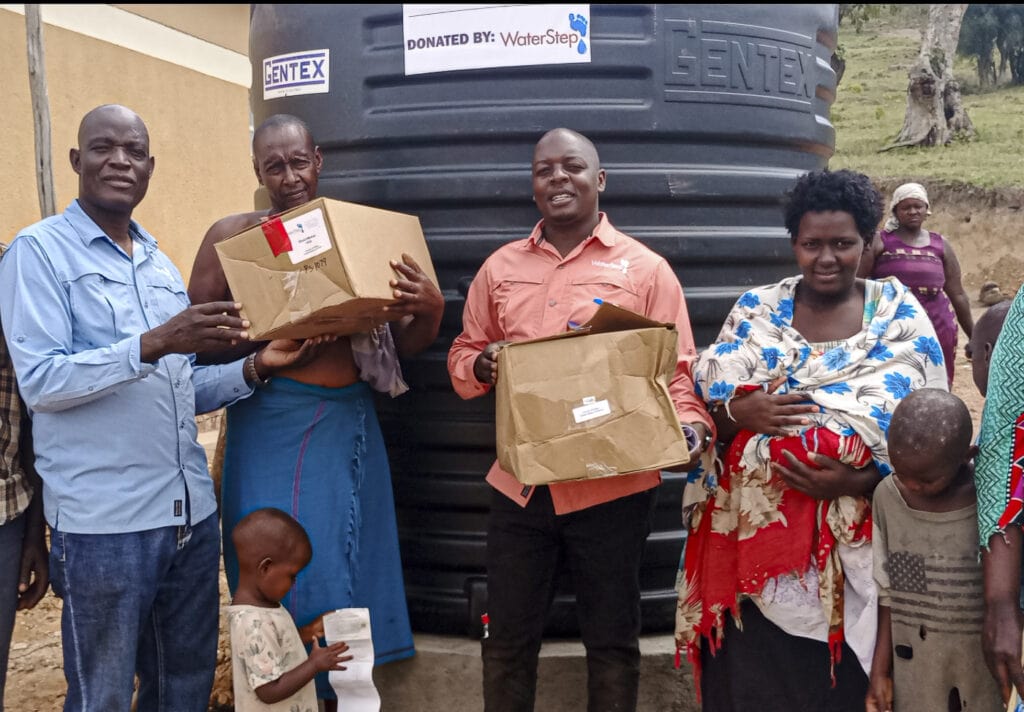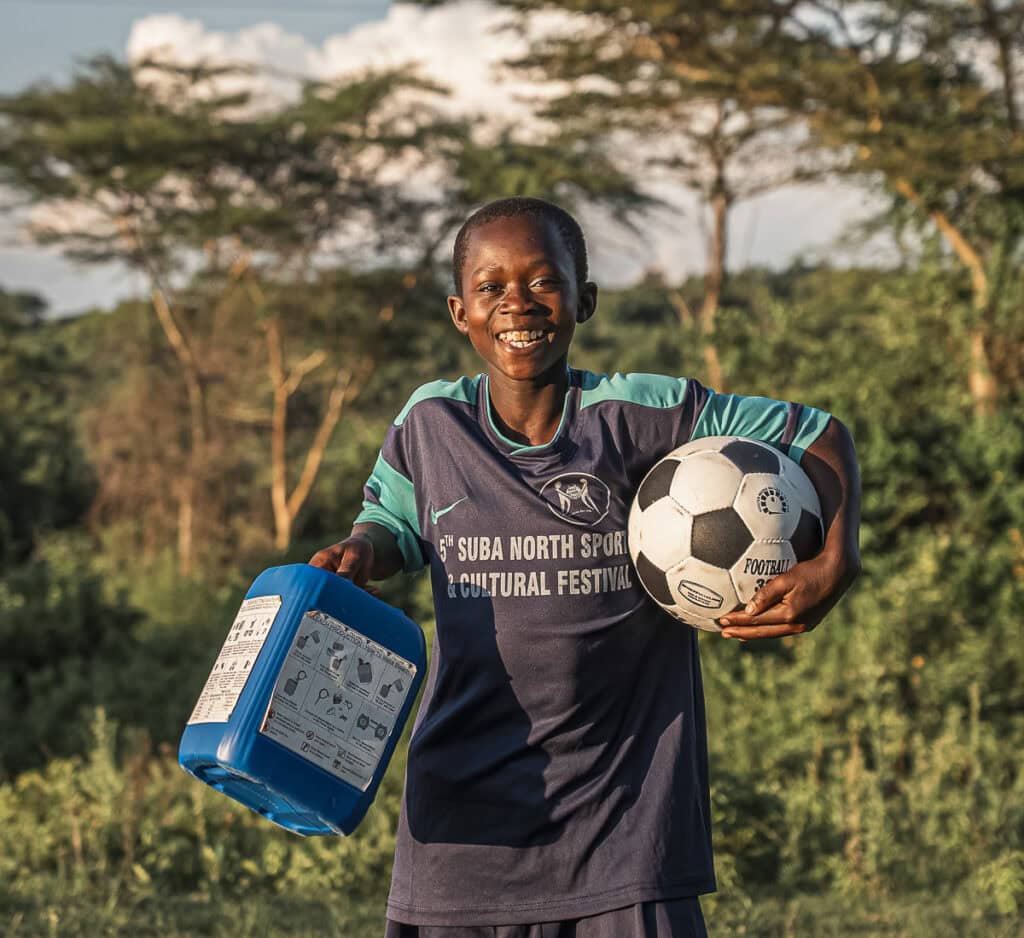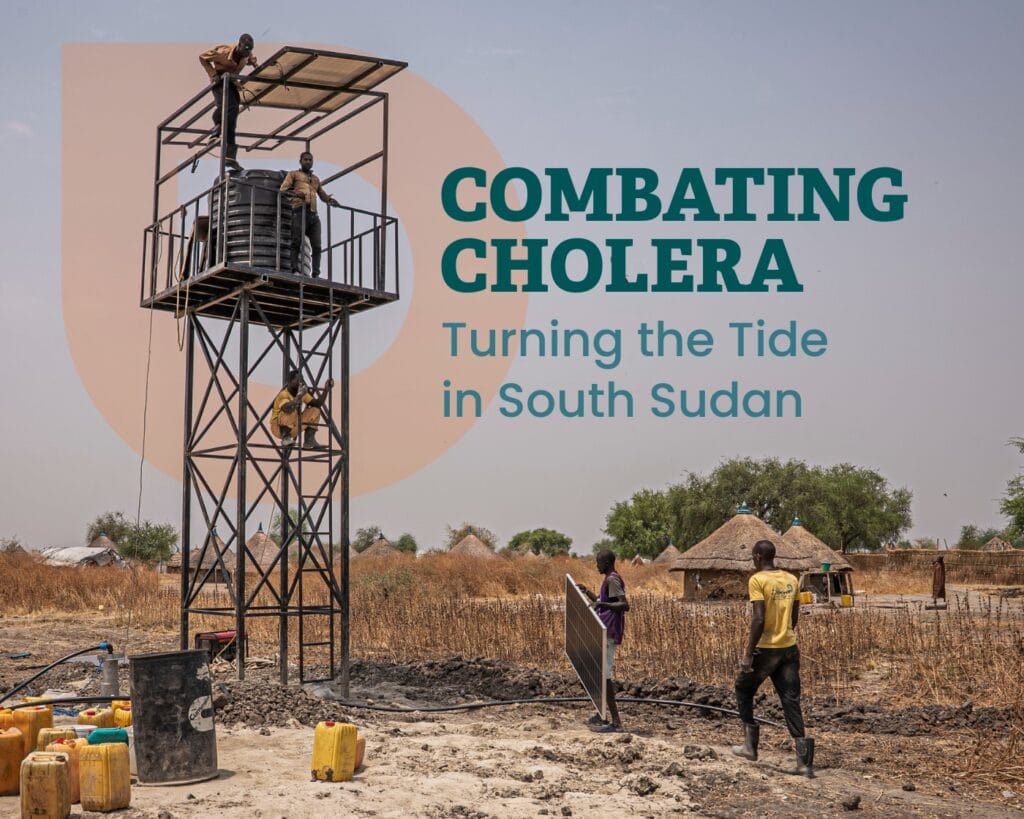Safe Water Partnership Brings Transformation to Tanzania
“I’ve been back to villages where these projects have been installed for two or three months, and it changes the whole village.”
– Wayne Hudson, CEO, Safe Water Africa
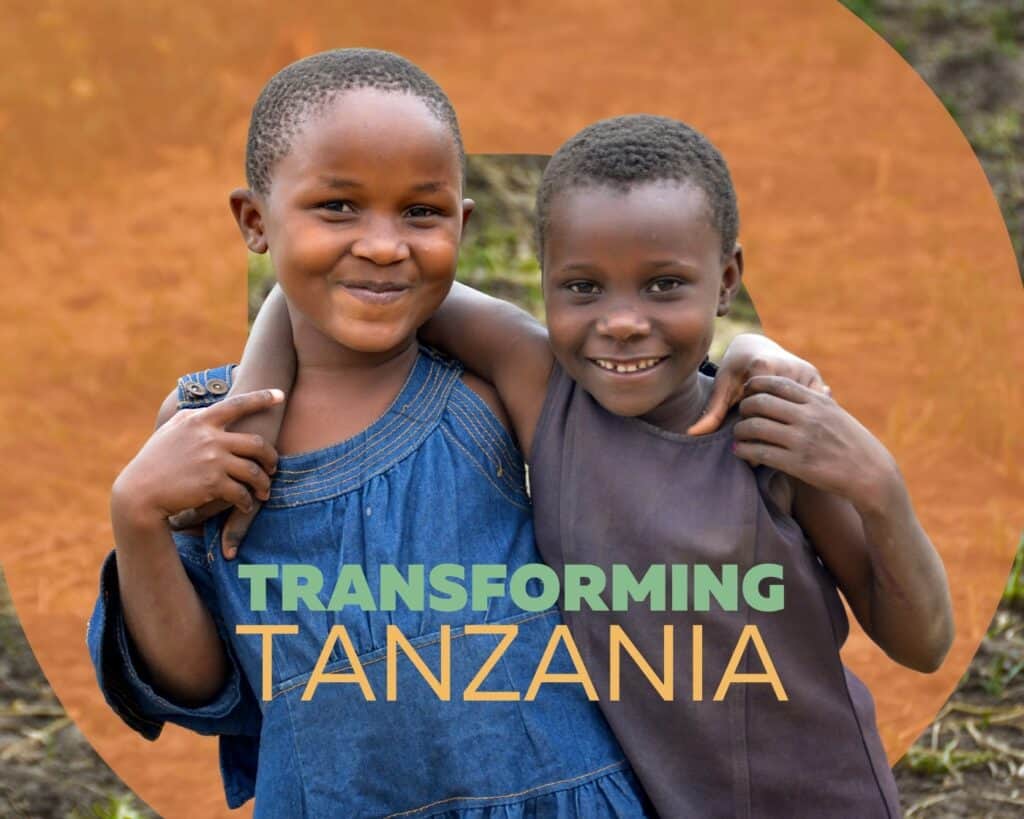
/ By Kristina Goetz
For 10 years, a small group of dedicated people in Birmingham, Alabama have partnered with WaterStep to transform thousands of lives across Tanzania with safe water.
What started as a church project grew into a small non-profit called Safe Water Africa that’s made a big impact with the help of WaterStep equipment and guidance.
Quietly and without fanfare, Safe Water Africa has completed 87 safe water projects in 24 of the country’s 26 mainland regions. Eight more projects are planned this year, and by the end of 2025, the organization will reach every region in the nation – which is about twice the size of the U.S. state of California – with WaterStep programs. They have plans to expand to all five regions of Zanzibar and then to neighboring countries.

“I’ve been back to villages where these projects have been installed for two or three months, and it changes the whole village,” said Wayne Hudson, CEO and chairman of the board for Safe Water Africa.
“The health of the whole village has improved. Instead of kids going to medical clinics for diarrhea, they’re going to school. They’re going about their lives.
So, it changes the whole health of a village.”
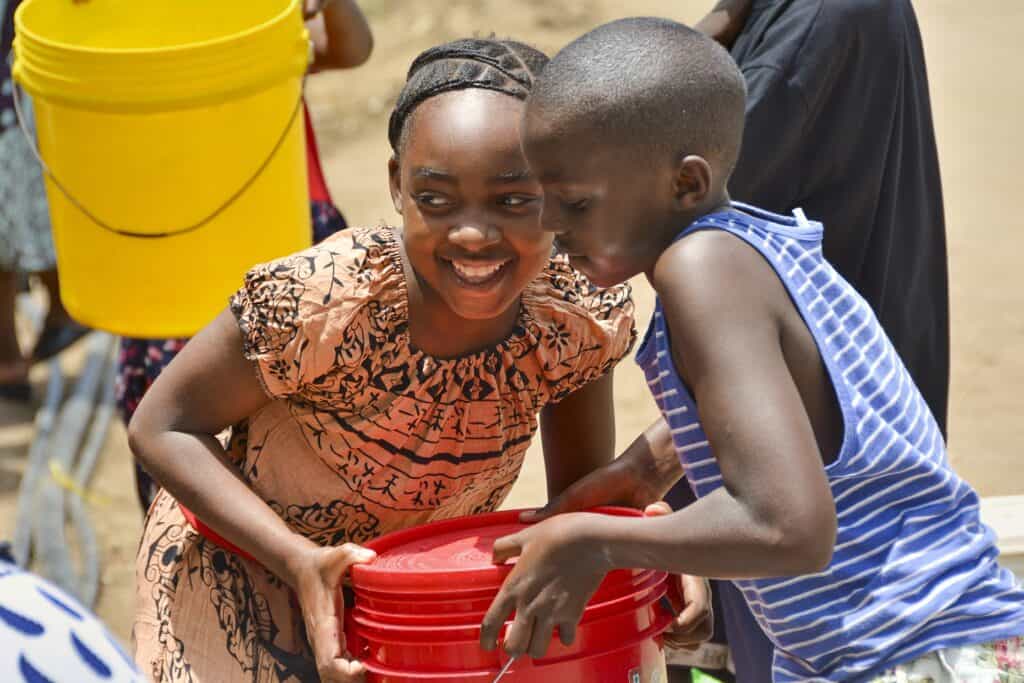
For 30 years, WaterStep has partnered with NGOs, governments, faith-based organizations and others to bring safe water to people who wouldn’t have it otherwise.
“The impact we’re seeing with groups like Safe Water Africa and our friends in Alabama shows just how powerful partnerships can be,” said Mark Hogg, WaterStep founder and CEO. “Every new partnership has a ripple effect. It gives us the chance to reach more people with safe water – and when that happens, everything changes.
“Health improves, kids stay in school, and communities thrive. We’re not just solving a problem; we’re creating a movement.”
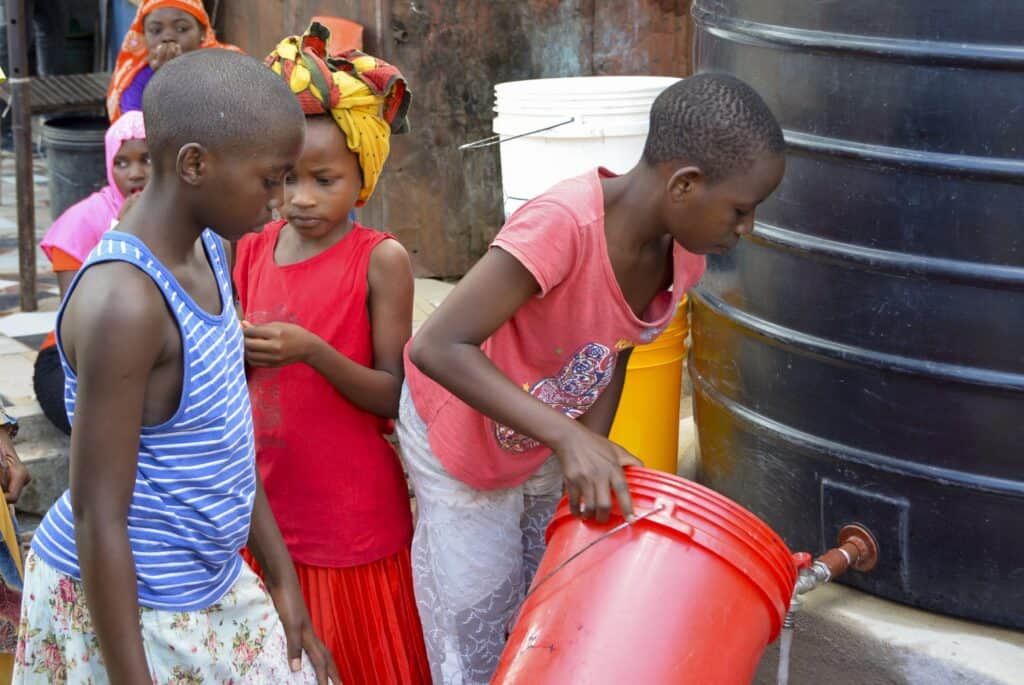
One Mission Trip Changed Everything
Wayne grew up in Birmingham and earned an engineering degree from the University of Alabama. For more than three decades he traveled the world for Chicago Bridge & Iron Company. He lived in Hong Kong, Paris, London, and Manila.
When he retired as VP of sales for one of the company’s divisions in 1998, his family moved back to Alabama where he joined Mountaintop Church. He served as executive pastor for 10 years, running the business side of the 3,000-member church. In 2024, Wayne helped found Elevate Community
Church in Birmingham, which has also adopted Safe Water Africa as a mission partner, including financial support, as does Evangel Presbyterian.
But it was at Mountaintop where Wayne met Joel Rugano, who was studying for his seminary degree in Birmingham. The pair became fast friends and started to plan a mission trip to Joel’s home country. Their first visit was in 2007.
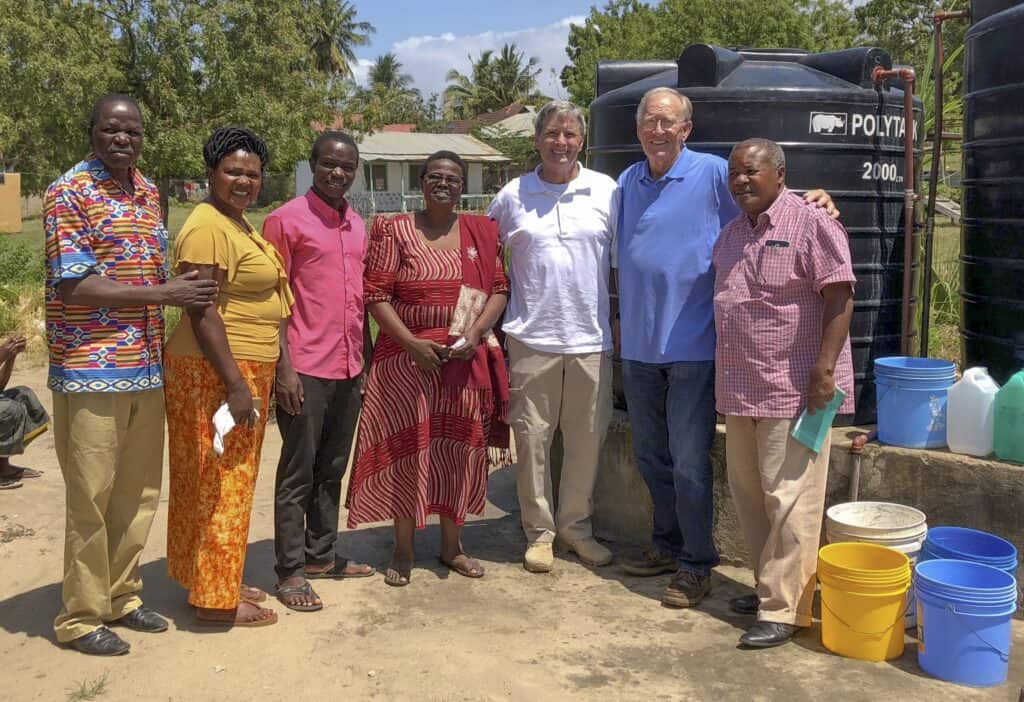
“We learned a lot about Tanzania and the needs over there,” Wayne said. “One of the things that hit us in the face was the lack of clean water and how that affected the lives of people there. One of the things we did many times was hold medical clinics. We would organize and set up a local tent and do a medical clinic in a lot of rural areas. And we found out that probably 80 percent of the illnesses we were treating were symptoms of bad water.
“So, the light went on for all of us who had engineering inclination: Let’s do something about this, and let’s treat the source rather than the symptoms.”
In 2010, Joel decided to start his own ministry back in Tanzania to serve rural churches and pastors. And in 2011, Wayne and others at the church created a non-profit organization to help fund his outreach efforts. That eventually became Safe Water Africa.
“We might build one of these projects for a 150-member church in the middle of nowhere, but there may be a village over the hill of 2,000 people who need clean water,” Wayne said.
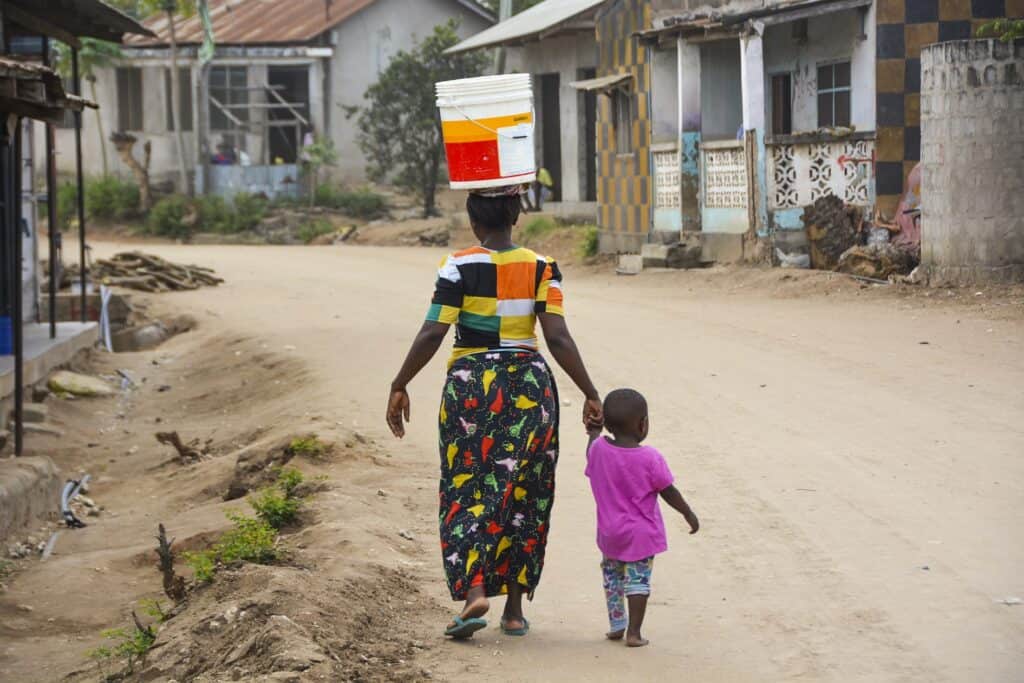
A New Idea
The small team continued to travel to Tanzania. They provided education services and bicycles but wanted a program to help rural pastors make an even bigger impact.
In 2013, the group discovered WaterStep’s ChlorineGenerator. The technology can generate up to 10,000 gallons of safe water per day from nearly any water source – surface water, rainwater, rivers, or boreholes, in storage tanks or tanker trucks. With a 12v DC power source and a handful of salt, the ChlorineGenerator simply and safely produces chlorine gas that is injected into the water to kill waterborne pathogens and bacteria.
It wasn’t just durable and reliable. It was easy to teach locals to use.
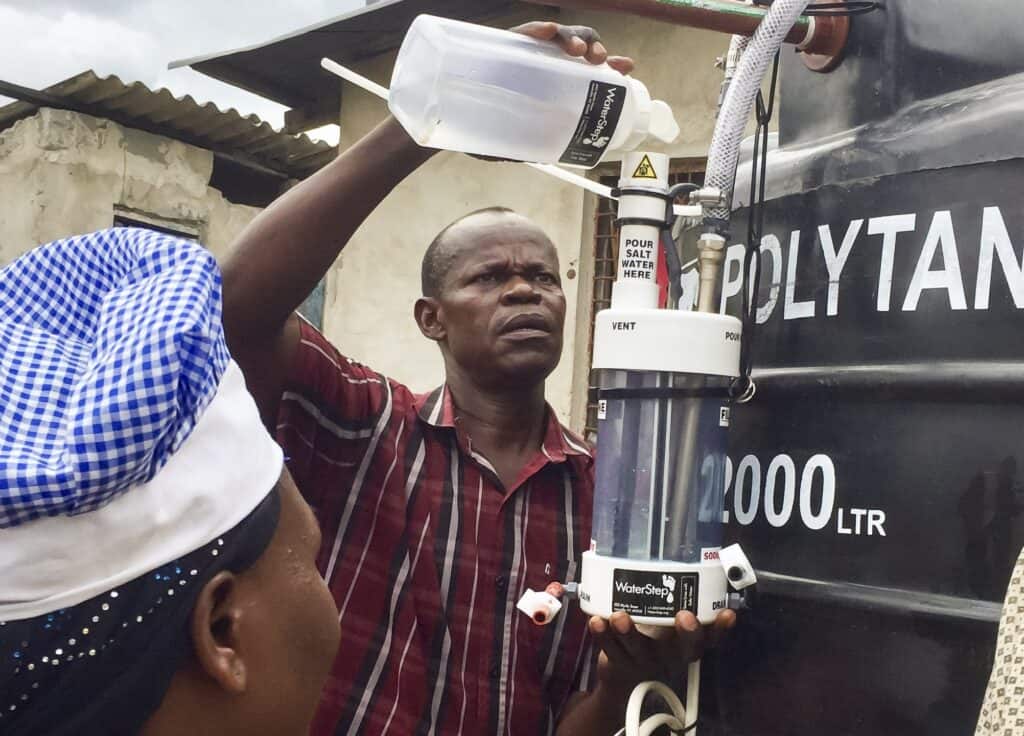
By 2014, the group had raised enough money to install their first safe water project on the grounds of a local church. It was in Temeke village on the outskirts of Dar es Salaam. Soon, other projects followed.
Joel remembers one father who lost two children, a 4-year-old boy and a 7-year-old girl because of a diarrhea outbreak. The family drank dirty water from the local river, which was contaminated with bacteria that causes cholera, diarrhea, and typhoid.
“He has more kids, and he said, … “I’m not sure if (a diarrhea outbreak) would come again, who would die,’” Joel said.
Now, this father won’t have to worry about burying another child.
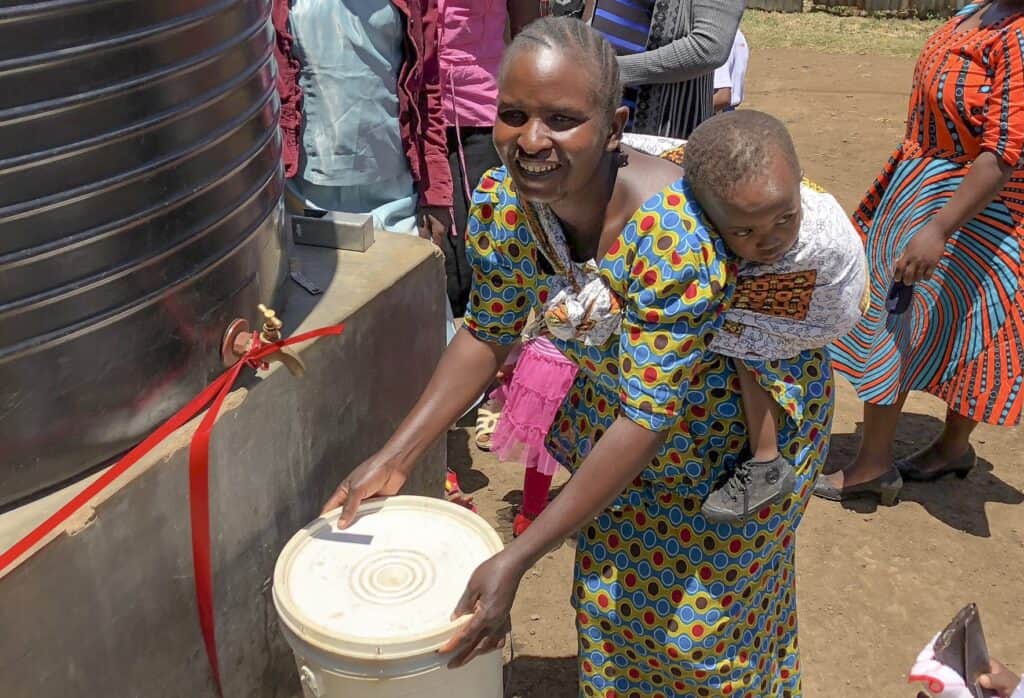
At first, villagers didn’t believe the technology could do what Joel said it would. But word fast spread as waterborne diseases decreased and demand from rural churches and pastors skyrocketed.
It doesn’t matter how many times Joel sees the transformation in communities. It makes him emotional every time.
“I feel so blessed to touch my people and bless them in this way,” he said.
The most recent safe water project, No. 87, was in December in Majengo village in the Rukwa region. Joel traveled 19 hours by car and then walked several miles to get there. There’s not much infrastructure. There’s no electricity or even roads.
But a joyful crowd awaited Joel because they knew his arrival signaled the community change to come. There are about 200,000 people in the entire community, Joel said. Safe Water Africa implemented four safe water projects to serve the area.
“Now, with these 87 projects, people know what this is,” he said. “They call us, and they want it.”
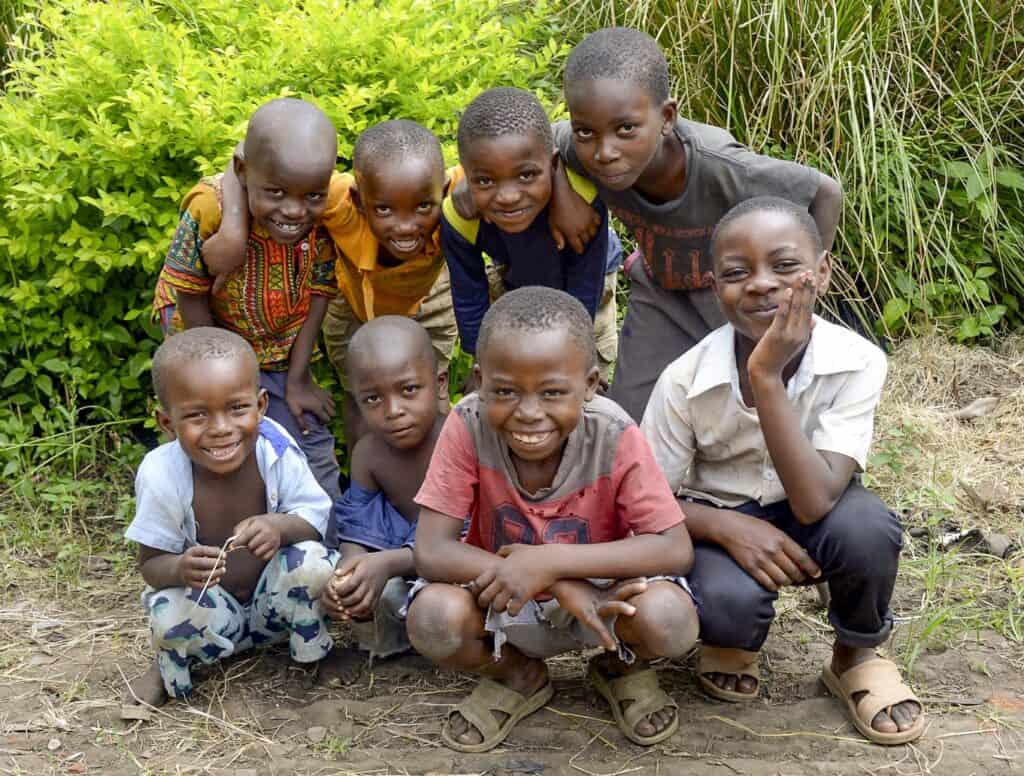
Big Plans for the Future
Back in Birmingham, Wayne has eight more ChlorineGenerators sitting in the corner of his office. They’re packed in foot lockers and ready to go when friends are scheduled to travel and can take them in as luggage.
The non-profit’s eight-member board of directors is all-volunteer, Wayne said, so 100 percent of outside support goes directly to projects.
“The more we do this, the more demand he gets,” Wayne said of Joel.
Joel has his own teams in Tanzania – including his wife Hilda and son Victor – that train communities. The more money Safe Water Africa raises, the more WaterStep equipment Joel can place in rural communities. He has dreams of expanding to provide safe water projects to rural churches in Rwanda, Burundi, Malawi, Zambia, Mozambique, and the Democratic Republic of Congo.
“Charity starts at home first,” he said. “You start with your own people. Then we can expand.”
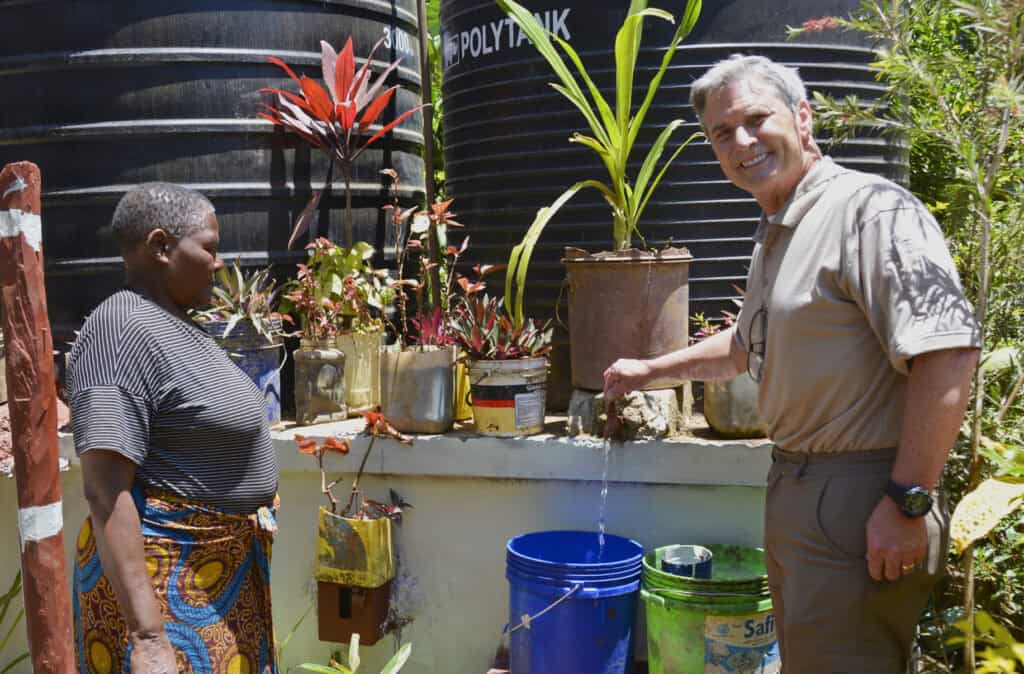
Reflecting on Impact
Wayne has been to Tanzania himself six or seven times. The last time was in 2018 before the COVID-19 pandemic. Safe Water Africa’s process has become so streamlined, it’s not necessary to send people from America as often as they used to. Joel handles all the project management on the ground.
The more money they save on travel, the more projects they can complete. That means more impact – the kind of transformation Wayne has seen with his own eyes.
“When it really hit me in the face was 2016,” he said. “…We visited a half a dozen sites where we had installed these. One of the most impactful ones was in Dihombo, Morogoro. It’s not too far from Dar Es Salaam, but it’s way out in the bush in a small area.”
It took Wayne and the small team a while to get there. They arrived about three months after the safe water project was installed.
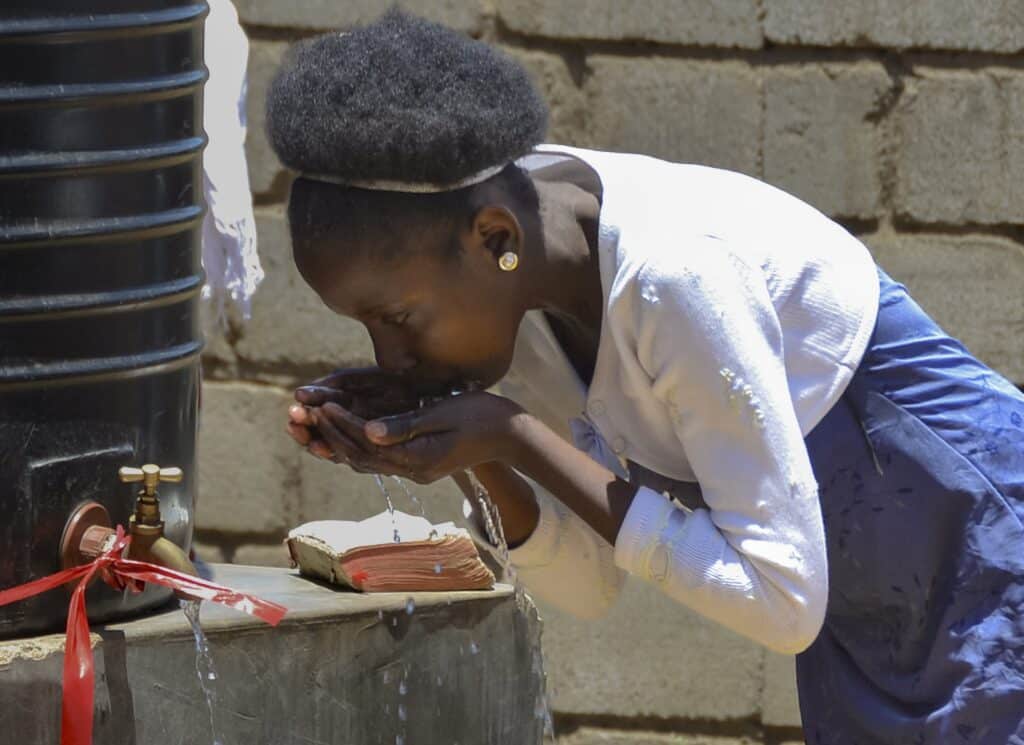
“It was just amazing to talk to people and hear about how the whole health of the village changed in a two-week period,” he said. “People stopped getting stomach-related illnesses because they weren’t drinking contaminated water.”
Even though the projects are on church properties, the safe water is always available to anyone in the community, regardless of faith.
Wayne is 84 years old now but still has a drive to fund more safe water projects. He sees his own work in this as obedience to God.
“My wife says it keeps me off the streets and out of trouble,” he joked. “But really, it’s a blessing to be doing this work. I can’t think of a better mission.”
He added: “We didn’t start out to be the biggest non-profit in the world. We’re sort of taking it as the Lord leads us. If He wants us to expand, He’ll make that happen.”
